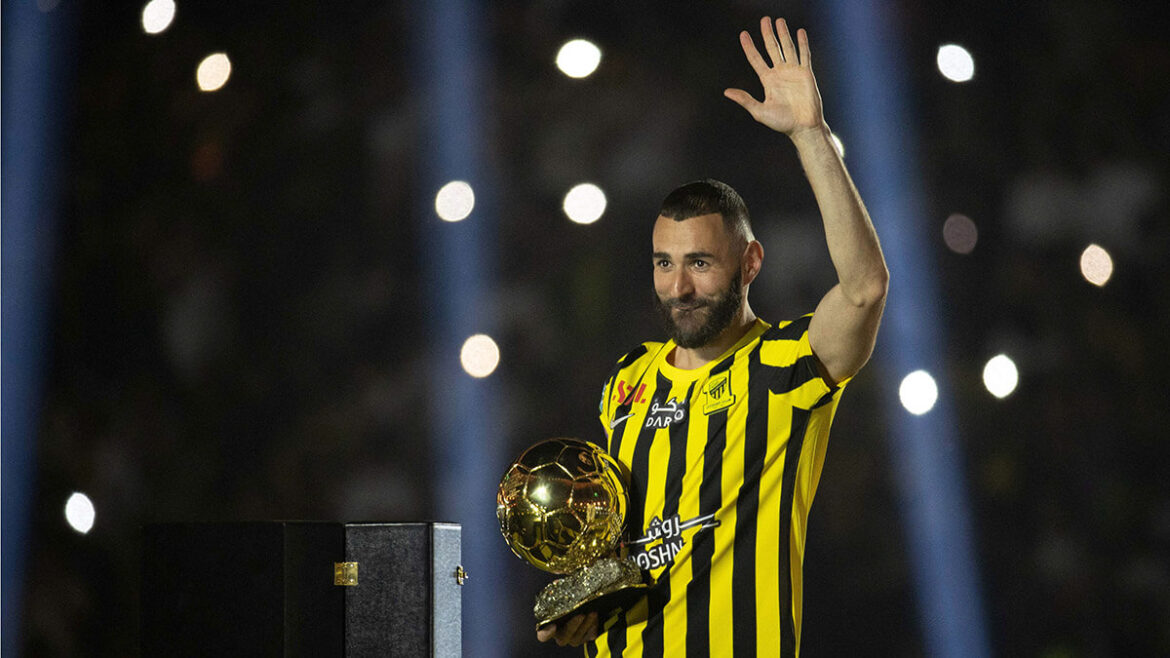Saudi Pro League Scaling Back on Star Player Acquisitions in 2023
Following an extravagant investment close to $1 billion during the 2023 transfer season, the Saudi Pro League has significantly reduced its spending on‍ elite football talent by approximately 50%. This strategic transition aims to solidify the league’s presence on a global scale.
The Push for Global Recognition
The Saudi monarchy’s pursuit of elevating its football league is chiefly driven by the Public Investment Fund (PIF), attracting global superstars such as Cristiano Ronaldo—renowned for his multiple Ballon d’Or victories—Karim Benzema, an illustrious former Real Madrid forward and second-highest goal scorer in the club’s history; N’Golo Kanté; Sadio Mané; Neymar Jr.; Yassine Bounou; and Aymeric Laporte. Each of these athletes brings considerable accolades that amplify the league’s international appeal.

A Shift in Focus: Technical Development Over Big Names
Despite being a front-runner just behind the Premier League regarding financial input at one point last year, recent statistics indicate that Saudi Arabia’s league has slipped down to sixth place when compared to Europe’s ‘Big Five’ leagues. This change underscores a larger strategy focusing on enhancing technical structures within clubs and fostering talent from grassroots levels. The ultimate goal is for this improved infrastructure to contribute positively not only at club competitions but also bolster national team performance.

A Review of Economic Sustainability Amidst Challenges
Amid ongoing challenges related to economic diversification efforts away from oil reliance under Crown Prince Mohammed bin Salman’s Vision 2030 initiative, officials within the Saudi league are meticulously analyzing their substantial past investments. With budget constraints tightening due to geopolitical events—including conflicts in Ukraine and Gaza—as well as lingering effects from COVID-19 disruptions, there’s a conscious effort towards rationalizing expenditures.

This year’s influx of high-profile talents certainly bolstered visibility—for instance, Cristiano Ronaldo’s welcome event attracted over two billion viewers globally—but maintaining long-term viability remains paramount. In contrast with China’s previous sports investments which lacked resonance over time and failed media returns post-expenditure comparison studies show that eventual outcomes hinge more upon sustained growth‌ initiatives rather than transient star signings alone.
Navigating New Financial Landscapes: Global Trends Affecting Transfers
The decline in spending isn’t isolated solely within the confines of Saudi Arabia—it reflects wider trends impacting many prominent leagues worldwide including England’s Premier League where restrictions imposed via Financial Fair Play regulations necessitated significant cuts. FIFA reports reveal that revenue generated through player transfers witnessed a notable drop nearing $6.4 billion—a decrease approximated at 13% compared with previous years across all nations undertaking similar monetary maneuvers.
The Road Ahead for Saudi Football Investments
Although lavish acquisitions may remain feasible moving forward periodically—it appears prudent decision-making regarding these ventures needs reassessment alongside expected financial outcomes like broadcasting rights or merchandise sales which thus far yield suboptimal returns necessitating adjustments across sporting operations priorities everywhere including how they align with grander objectives outlined under prominent frameworks like Vision 2030 aimed ultimately securing futures beyond immediate overseas focal points towards local capacity enhancements thereafter too post-international tape efficiencies achieved gradually along respective timelines considered albeit cautiously moving forth further!

